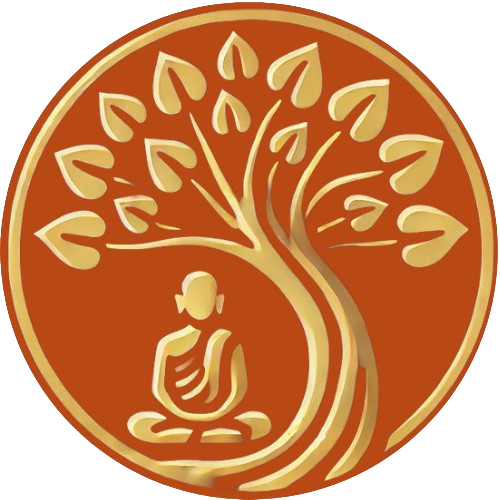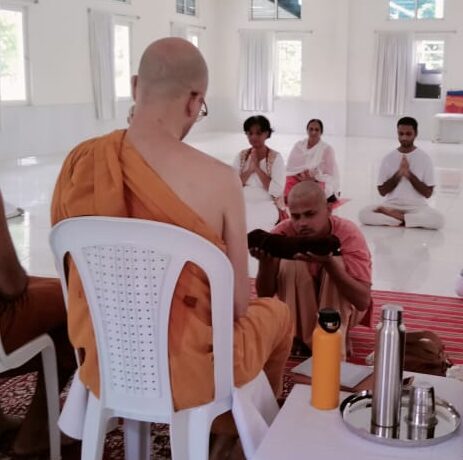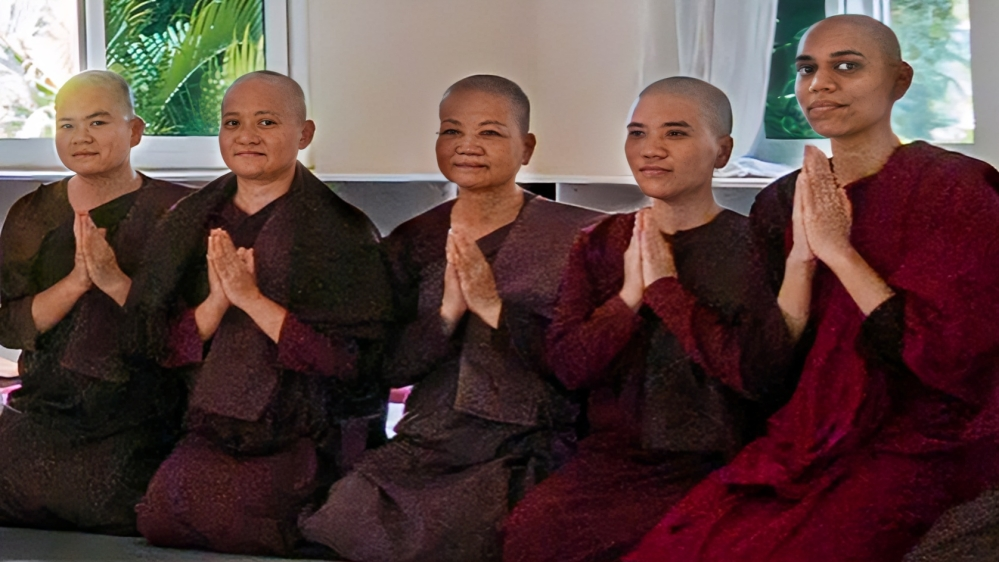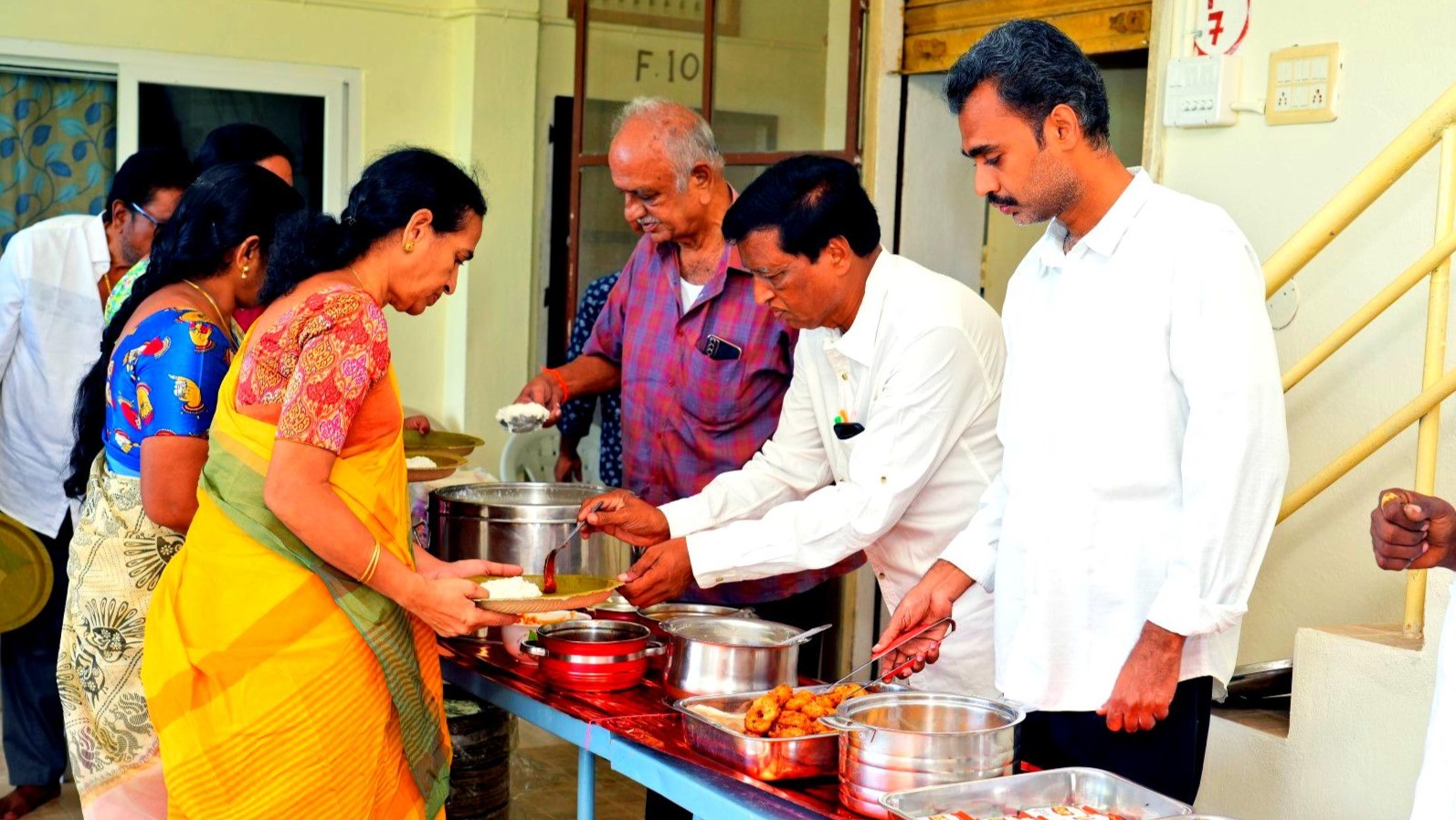Guidelines for Samaṇeras
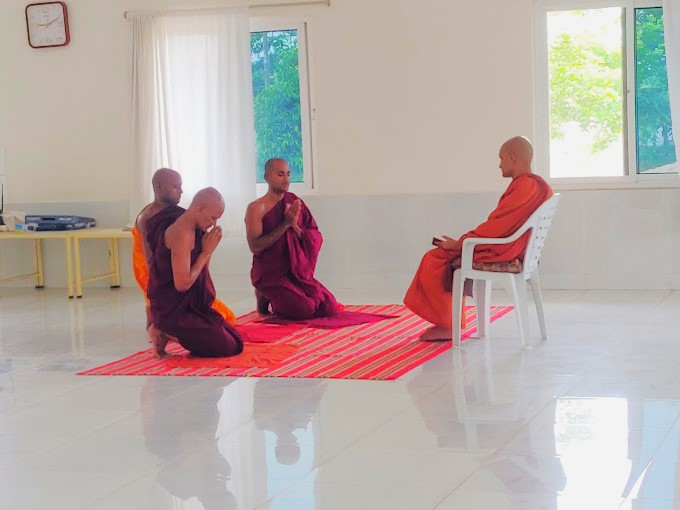
Residency Principle
Sangharama welcomes all who wish to deepen their monastic practice in a disciplined and contemplative environment. While short-term visitors are welcome, those seeking long-term residency should clearly understand:
- Sangharama is a training ground for those who wish to walk the path that leads towards end of all Suffering with a sincere heart and faith in Buddha, Dhamma and Sangha.
- At Sangharama we follow Heart Dhamma tradition which is nothing but the Buddha’s teachings with the emphasis on heart qualities like sincerity, humility and honesty.
- Residency means living in accordance with the guidance of the resident teacher, the monastery’s daily schedule, and guidelines.
- Long-term residents are expected to commit sincerely to the community’s way of training and uphold harmony with the Sangha.
Residency at Sangharama is both a privilege and a commitment — a shared vow to uphold Vinaya discipline, sincerity of Heart, and collective harmony of the Sangha.
1. Commitment to the Holy Life
- A Sāmaṇera should dedicate himself to the training with sincerity, humility, and diligence.
- The goal of ordination is to cultivate moral purity, wisdom, and detachment from worldly distractions.
- The Sāmaṇera life is a preparatory stage for full ordination (Upasampadā) as a Bhikkhu, requiring strict discipline and adherence to Vinaya principles.
2. Observance of Ten Precepts
A Samanera must strictly follow these fundamental precepts:
- Refrain from killing any living being.
- Refrain from taking what is not given.
- Refrain from all sexual activity.
- Refrain from false speech.
- Refrain from consuming intoxicants.
- Refrain from eating after midday.
- Refrain from entertainment.
- Refrain from beautification.
- Refrain from sleeping on high and luxurious beds.
- Refrain from accepting gold and silver ( money ).
3. Daily Monastic Discipline
- Meditation: Participate in the daily schedule of meditation with full devotion.
- Study of Dhamma & Vinaya: Engage in learning Pali scriptures, suttas, and Vinaya under the guidance of senior monks.
- Dāna & Almsround (Pindapata): Accept food offerings respectfully and mindfully, seeing them as nourishment for spiritual practice.
- Work Assignments: Contribute to monastery maintenance, cleaning, and tasks assigned by senior monks as an offering of service.
- Personal Conduct: Maintain a respectful attitude towards senior monks, fellow Sāmaṇeras, and lay supporters.
4. Interaction with Laypeople and External Society
- Maintain a proper monk-layperson relationship with mindfulness and restraint.
- Accept alms and support graciously but without attachment or desire.
- Avoid unnecessary conversations, distractions, and worldly affairs.
- Speak only what is beneficial, truthful, and aligned with Dhamma.
5. Study and Contemplation
- Deepen understanding of the Buddha’s teachings through study, reflection, and discussion with knowledgeable monks.
- Cultivate wisdom through reflection on impermanence, suffering,and non-self.
- Avoid intellectual pride and remain open to learning under senior monks’ guidance.
6. Simplicity and Renunciation
- Live a simple and basic lifestyle.
- Avoid attachments to comfort, possessions, or personal preferences.
- Practice contentment and gratitude for what is offered.
7. Respect for the Sangha and Monastic Hierarchy
- Follow instructions given by senior monks with humility and discipline.
- Show respect to Bhikkhus and elder Sāmaṇeras through proper greetings and conduct.
- Maintain harmony and avoid disputes or conflicts within the monastery.
8. Ethical Use of Technology (If Permitted by the Monastery)
- Use digital tools only for Dhamma study and monastery duties, if allowed.
- Refrain from social media, entertainment, or any distractions from practice.
- Seek permission before using devices and follow guidelines set by the monastery.
9. Preparing for Higher Ordination (Upasampada)
- A Sāmaṇera who wishes to become a Bhikkhu should refine his conduct, deepen his practice, and seek guidance from senior monks.
- Only those who show humbleness, humility, deligence, sincerity, and understanding of Dhamma-Vinaya will be considered for higher ordination.
10. Reflection and Personal Growth
- Regularly reflect on one’s progress and seek guidance from teachers.
- Understand the value of restraint.
- Strengthen mindfulness and self-discipline through constant effort.
- Keep in mind the ultimate goal: liberation from suffering (Nibbāna).
11. What to Bring
- Valid ID like Passport or Aadhaar Card for documentation and verification of identity.
12. Monastery’s Daily Schedule (Indicative)
- 4:00 am – Wake up, Exercise
- 4:30 am – Group meditation
- 6:00 am – Alms round (where practiced) or breakfast
- 8:00 am – Group meditation
- 9:30 am – Interview
- 10:50 am – Main meal
- 12:00 pm – Rest
- 1:00 pm – Meditation ( Sitting and Walking)
- 5:00 pm – Refreshment
- 6:00 pm – Personal meditation, study, or seclusion
- 10:00 pm – Lights Out
Conclusion
Let these guidelines be a source of discipline, wisdom, and protection in your journey as a renunciant.
May all who enter Sangharama uphold these guidelines with sincerity, leading to the purification of the heart, for the welfare of oneself and others, and the realization of the ultimate goal—Nibbāna..
